The Best Browsers for Privacy in 2023
date
Jan 2, 2023
slug
browsers-for-privacy
status
Published
summary
As your gateway to the internet, internet browsers are necessary for your daily life. When selecting the best internet options, the options are virtually limitless. But which of these browsers prioritizes your privacy?
tags
Website
type
Post
Author
Berktug Mutlu
category
Personal Information
meta_title
The Best Browsers for Privacy in 2023 - FastVPN
As your gateway to the internet, internet browsers are necessary for your daily life. When selecting the best internet options, the options are virtually limitless. But which of these browsers prioritizes your privacy?
We will review the top 15 of these tools for your selection below. But first, an explanation:
What is a Privacy Browser?13 of the Best Browsers for Privacy#1: Mozilla Firefox#2: Tor Browser#3: Epic#4: Brave#5: DuckDuckGo Privacy Browser (Mobile Only)#6: Aloha Browser#7: Iridium Browser#8: Vivaldi#9: Waterfox#10: Ungoogled Chromium#11: Opera Browser#12: Google Chrome#13: Microsoft EdgeTips For Finding A Good Privacy BrowserConclusion – How To Ensure Your Browser Data is SecureHow To Change Your Actual Location With a VPNWhy Hide Your IP Address?Why is My VPN Not Hiding My True Location?Websites use Tracking CookiesYour Browser Geolocation is ExposedYour VPN Leaks IP AddressesAnonymous Proxy vs. VPNConclusion
What is a Privacy Browser?
A privacy browser is specifically for maintaining your online privacy. A good privacy tool goes beyond selecting incognito mode on your browser, often blocking online trackers automatically.
A privacy browser often will come with methods to quickly delete cookies before they have a chance to track you. These features are integrated out of the box, needing little user interaction to get them done.
With privacy browsing on the rise, you can also expect the field to continue becoming more competitive.
13 of the Best Browsers for Privacy
#1: Mozilla Firefox
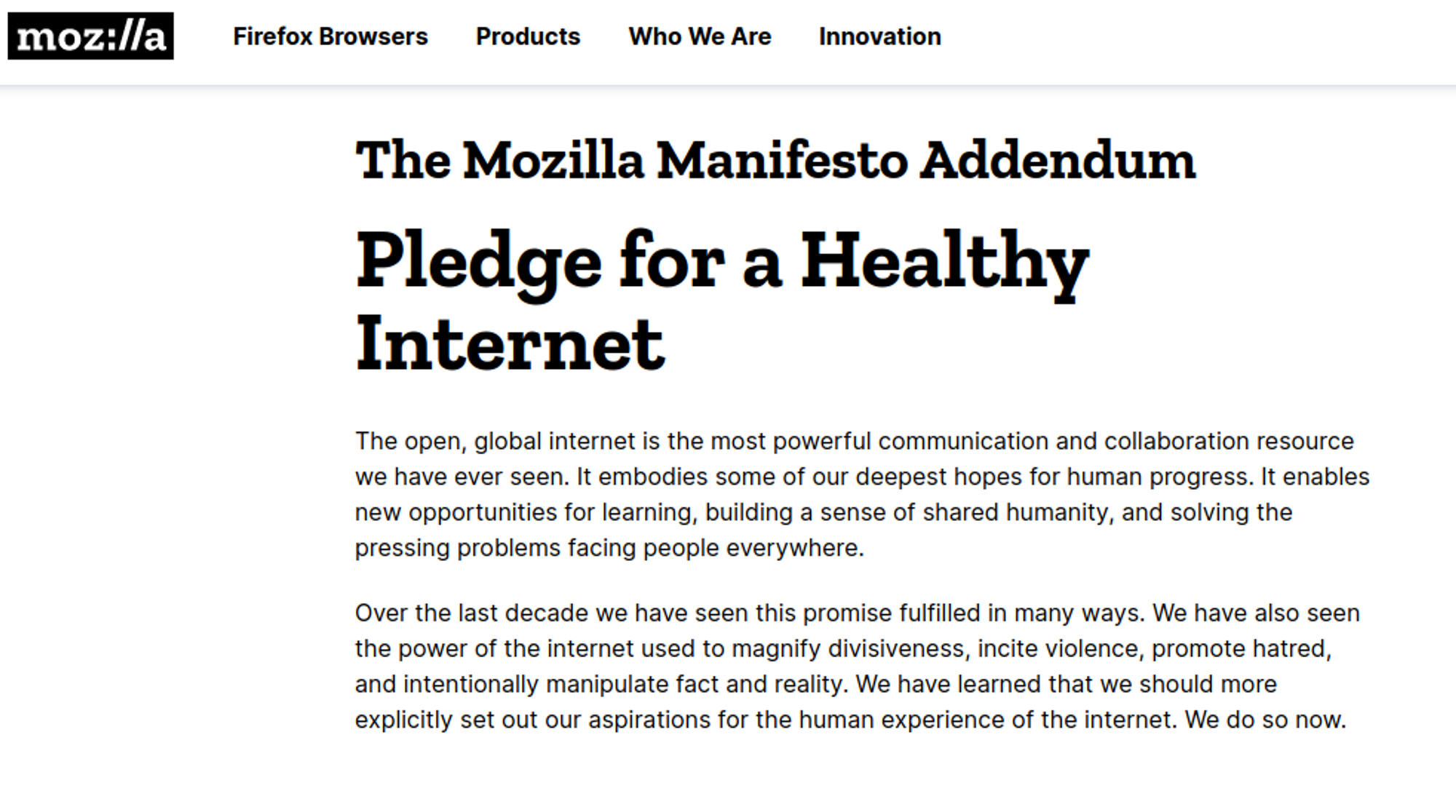
Mozilla Firefox is one of the best browsers for privacy, built off the idea of the Mozilla foundation. Mozilla’s manifesto believes that all people should have access to the internet. However, my interest is in Mozilla’s fourth principle:
Individuals’ security and privacy on the internet are fundamental and must not be treated as optional.
Firefox has browsers across all major platforms: iOS, Android, and Windows. You can also get it on Linux as well.
Firefox also has a specific privacy browser known as Firefox Focus. Mozilla is one of the largest companies maintaining a clear mission emphasizing your privacy.
Mozilla takes this further by offering a VPN, a security monitor, and a relay. You’ve got to pay a good chunk to get these services, but Firefox is an all-in-one deal.
The only drawback is that it requires settings tweaking to ensure it is truly secure.
#2: Tor Browser
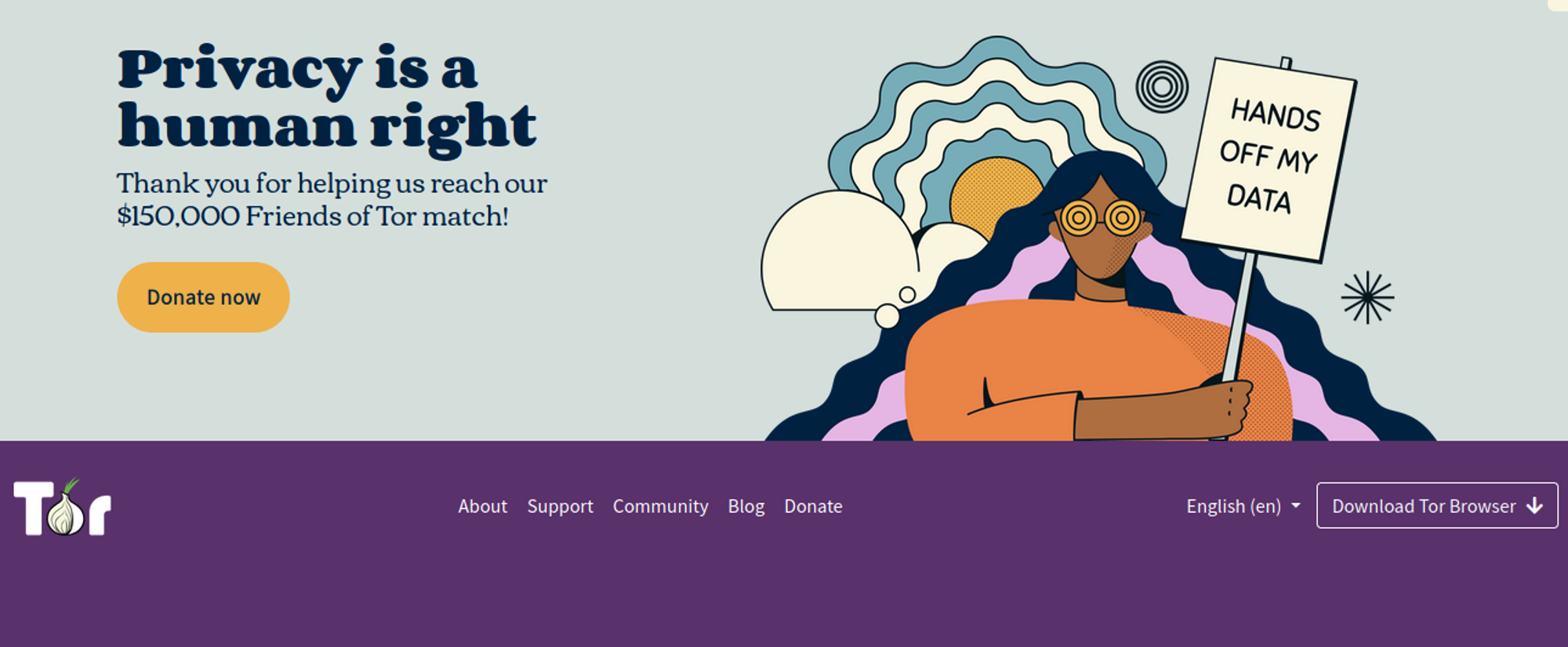
The Tor Project is a unique internet privacy group emphasizing privacy as a human right. It’s been around since the 1990s, becoming a nonprofit organization in 2006. It’s nonprofit focus makes it one of the best browsers for privacy.
The system, accessed by routers and browsers, is part of the onion network. Much like a virtual private server, the onion network bounces your connection from multiple locations, ensuring nobody can track your location.
The Tor Browser is part of this extension to the onion network. As a unique privacy browser, it is also one of the few that has many built-in aspects.
Tor users benefit from having three layers of encryption from multiple nodes. This security measure ensures that your information is incomplete and encrypted even if someone takes your data.
Because the browser is made for privacy, you don’t need to tweak any settings.
As another significant internet project, this tool is available on all major platforms: iOS, Windows, Linux, and Android. It is also open-source, meaning you can quickly get the source code.
Despite how great the organization is, there are a few drawbacks.
The main one comes from internet speed, which can be slower due to the onion routing system. Also, law enforcement and ISPs can still see you access the tor network, meaning you will need to supplement your security with a VPN.
#3: Epic
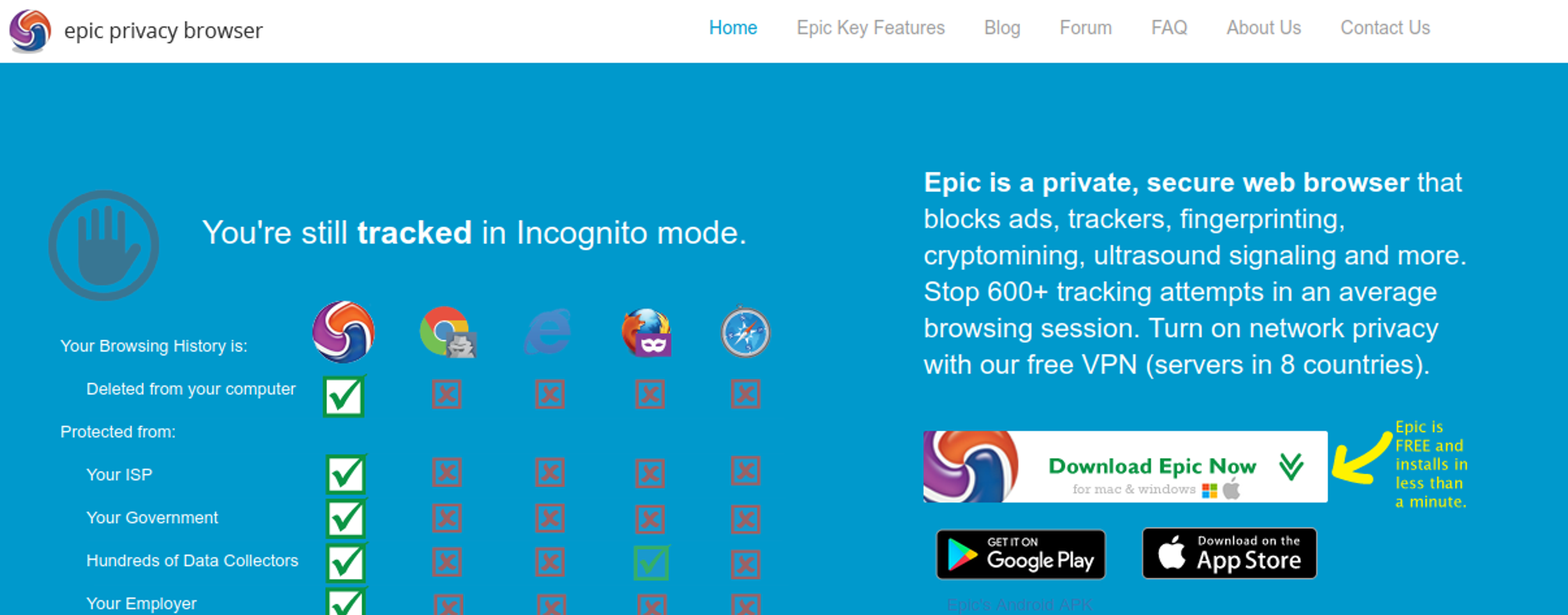
Epic is a Chromium-based web browser with all privacy settings turned on by default. Epic has a built-in VPN through an encrypted proxy, making it the first of those who use VPN technology. This makes Epic one of the best browsers for privacy.
On the surface, Epic appears to be very “bare bones,” removing many of the browser-based conveniences we’ve come to expect. Epic removes the following features:
- Spell check
- Auto-sync (popular with Google Chrome)
- Auto-fill
- Limited extensions
- No data caching
The browser also automatically references DuckDuckGo as its primary search engine. Epic takes your privacy seriously, even if it comes at a sacrifice to some conveniences.
The Epic Privacy Browser is available on Windows, Mac, iOS, and Android. There is no support for Linux devices.
Because Epic is Chromium-based, it comes from Google’s code. This means that there is no open-source element to it, and the code is owned by one of the world’s most prominent data collectors.
Despite this, Epic is a privacy leader.
#4: Brave
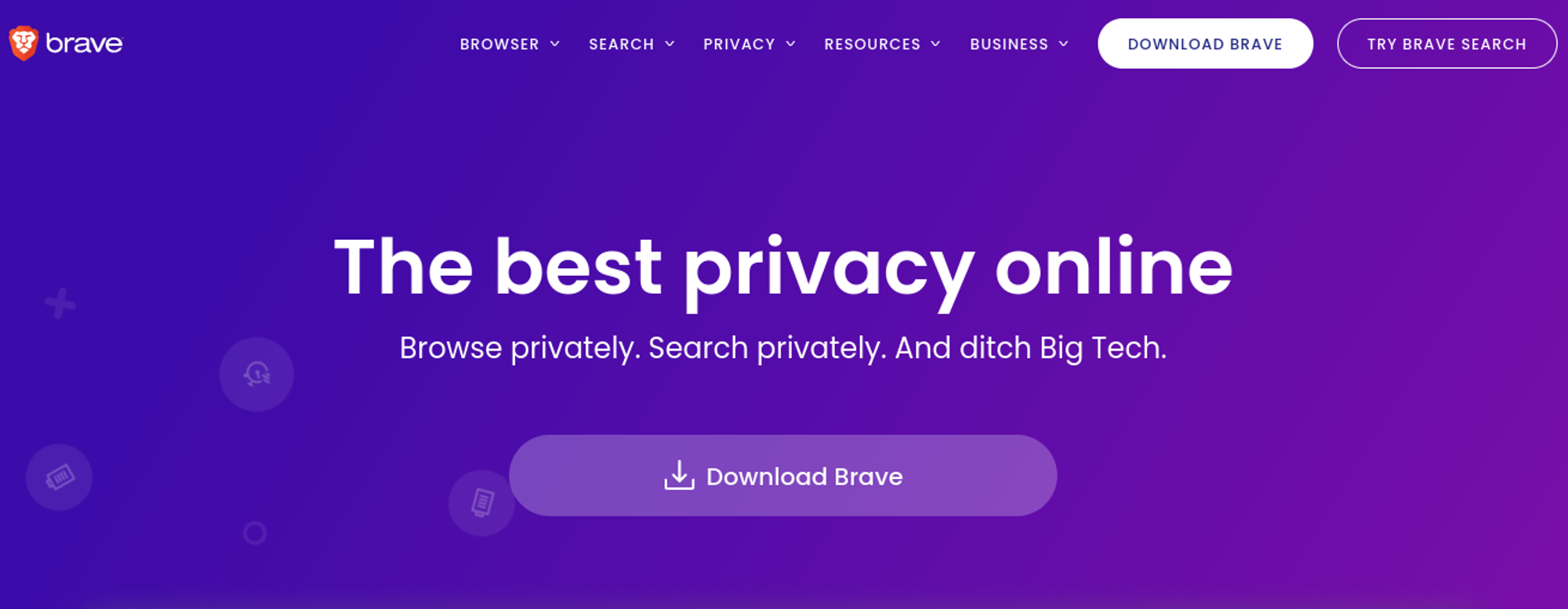
Brave comes from a former developer of Mozilla, Brendan Eich. The company was founded in 2016 and had a variety of products that compete directly with Firefox.
These include the following:
- Password manager
- Ad-blocking software
- Script blocker
- Anti-fingerprinting technology
Brave’s default browser page reminds you about how good it’s doing on the regular. It also comes “out of the box” with these settings in place.
Another unique aspect of Brave is a “Tor Tab,” competing directly with the Tor service. However, they are still new to it, with a few customers complaining about issues.
It also doesn’t have the same security protection as going directly through Tor.
Brave has a unique search engine that attempts to compete with DuckDuckGo. Brave is also associated with cryptocurrency, making it a heavy hitter for special features.
It supports several major Linux releases, Android, iOS, and Windows (32 and 64-bit options). It offers the most flexibility for those who like many operating systems.
Brave also supports Chrome extensions, making it more convenient than the average privacy tool. However, as a Chromium-based system, you will want to be incredibly careful to ensure any extensions you download have your security in mind.
#5: DuckDuckGo Privacy Browser (Mobile Only)
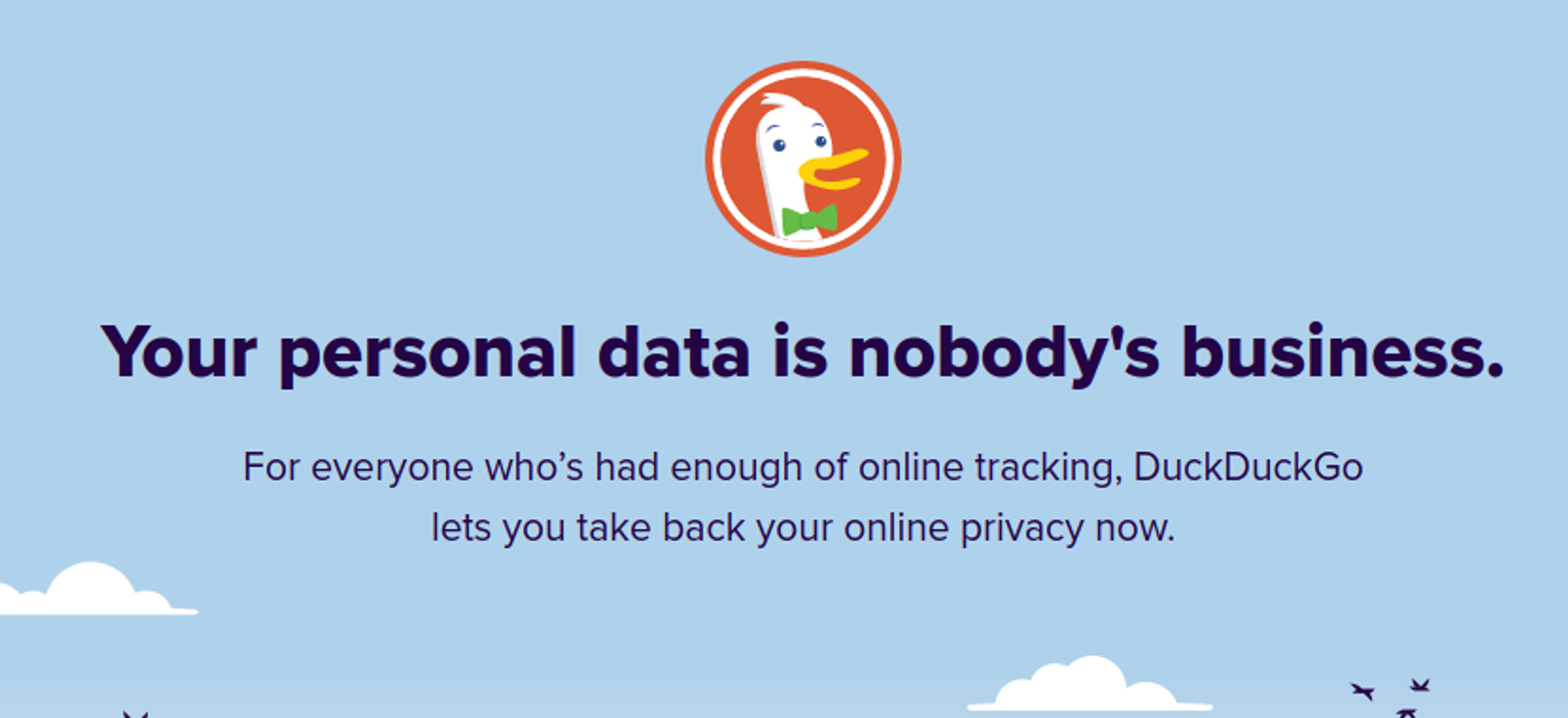
DuckDuckGo is mainly known for its search engine offering. However, it does have a privacy browser built around the company principles.
DuckDuckGo has been around since 2008, starting as a search engine (which it is still is). It is a remote company known for emphasizing privacy, something I can get behind.
The privacy browser is unique in its functionality. This means it forces HTTPS credentials and also provides email protection if you receive trackers from there.
The “fire button” creates a quick, easy, and entertaining way to delete all of your search histories at once. However, it doesn’t do this automatically when you log out (unless you modify the settings).
DuckDuckGo doesn’t have the same functionality as other options on this list. Instead, it is similar to Firefox Focus in that it emphasizes a clean and straightforward experience.
#6: Aloha Browser
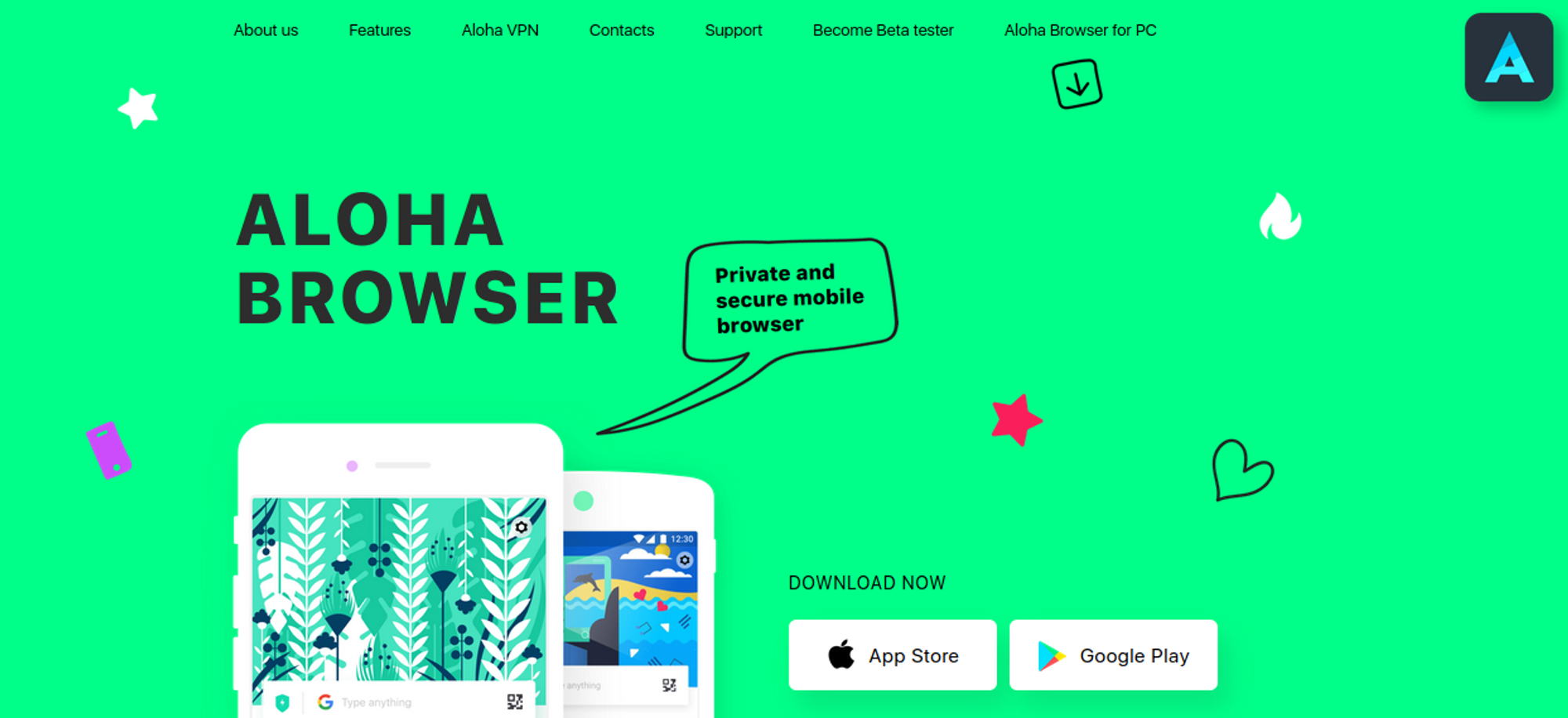
Aloha is a unique privacy tool known for providing a built-in VPN to block third-party cookies and other trackers. It also has encrypted software. However, it supports this by being one of the few on this list to offer a subscription service.
As you might expect, the free version that it comes with isn’t quite as powerful. As a result, this can be frustrating for those who prefer privacy without paying for extra stuff.
Aloha enables you to use its platform across Windows, Apple, and Android. There is no support for Mac devices. However, you can find it on the Amazon Appstore, Samsung store, and you can even download the APK.
Aloha’s best feature comes back to its file manager and password manager. The password vault and VPN make also Aloha a comprehensive offering. If you want to avoid larger companies, Aloha might be your choice as one of the best browsers for privacy.
#7: Iridium Browser
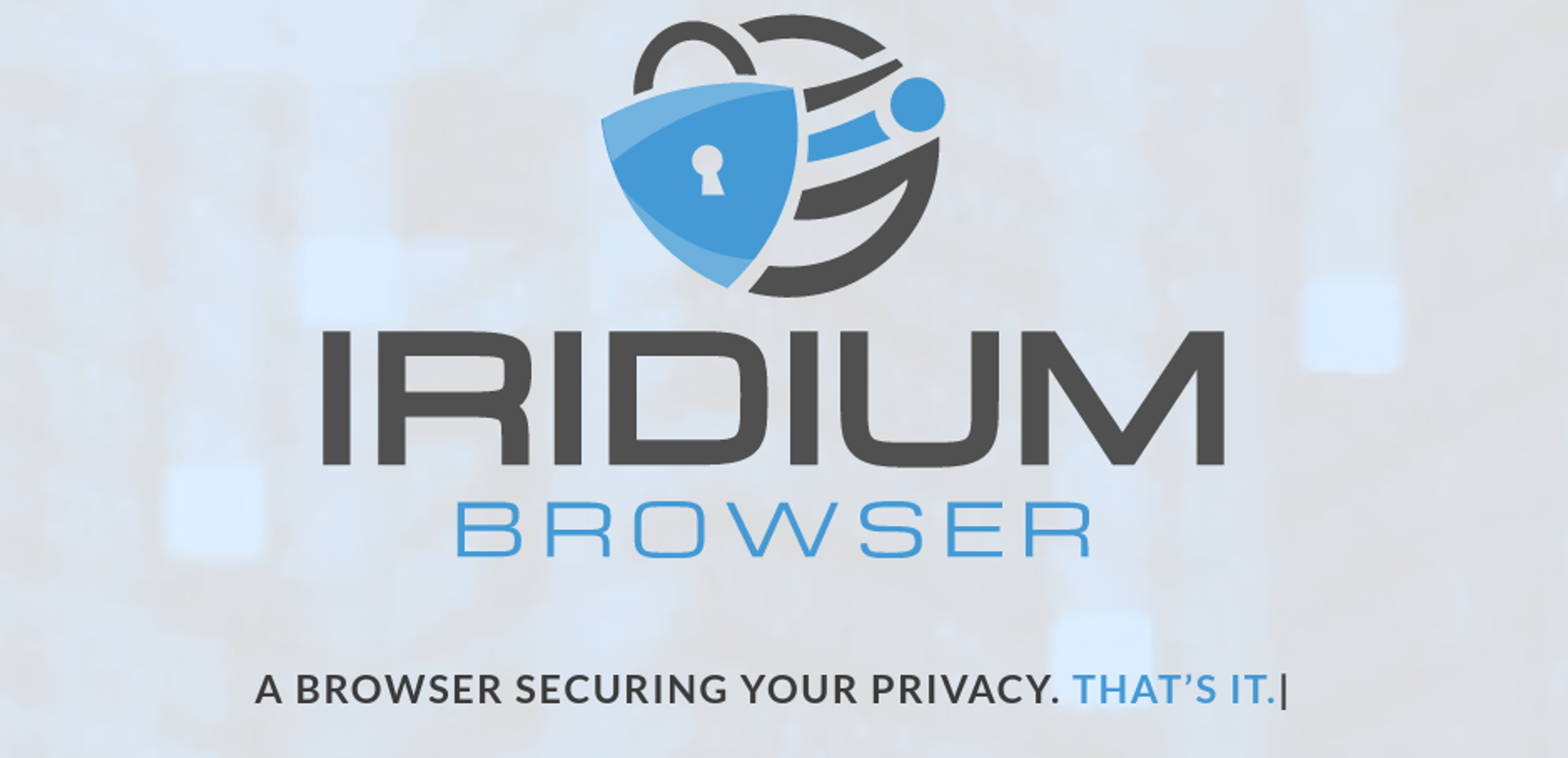
Iridium is another Chromium-based browser with a smaller team. Despite this, it offers complete access to its unique source code, making it a bit more approachable than Epic.
However, its smaller team focus means updates are typically infrequent. You are more likely to see this change as private browsing becomes more popular.
Iridium’s team doesn’t like to talk about itself, making its transparency claims questionable. However, there is no doubt that it does emphasize privacy, offering many improvements over Chromium browser defaults.
Iridium has sheared the browser down to a bare-bones focus. This focus makes it comparable to a less friendly-looking DuckDuckGo mobile browser.
Instead of relying on the duck, it uses another European-based search engine: Qwant. Qwant is another lesser-known company regarding search engine privacy.
Iridium supports downloads on macOS, Linux, and Windows. It currently has no mobile support.
#8: Vivaldi
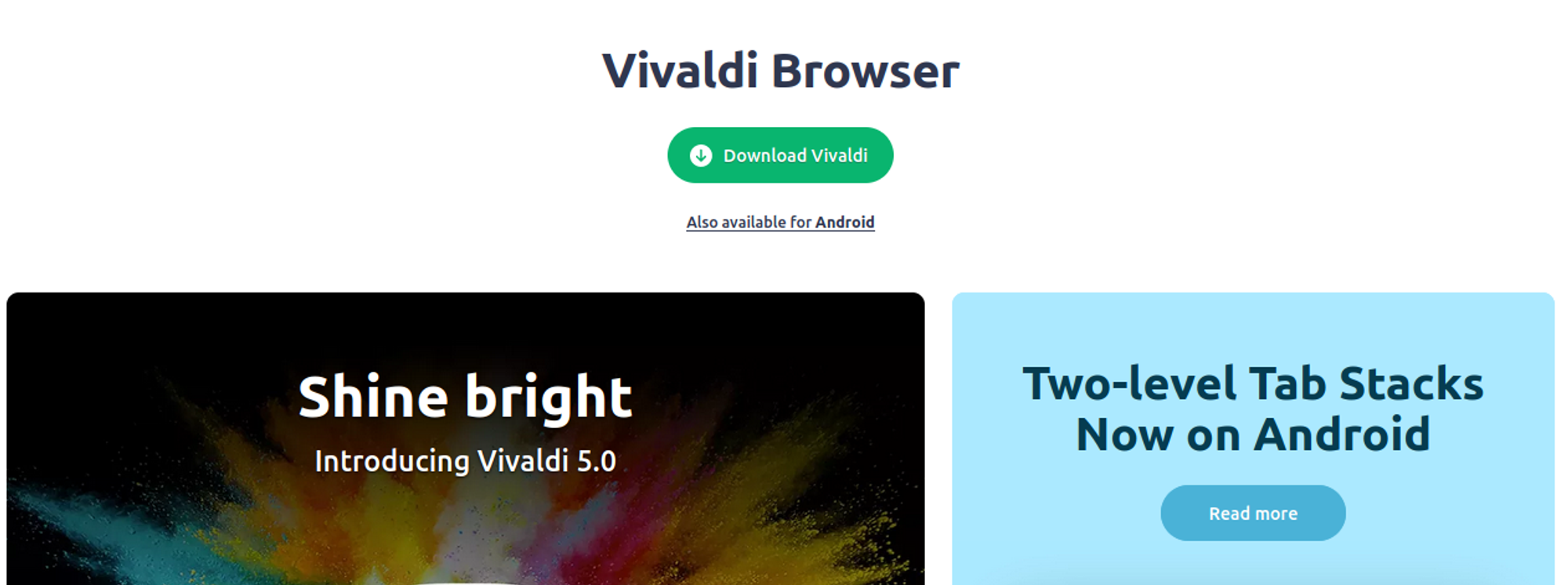
Vivaldi Security Group, the security team behind this browser, performs proactive security research based on its claims. With this in mind, its highest priority isn’t security, which is why you see it a bit lower on this list.
Compared to others on the browser market, this unique system has multi-layer browser tabs. Still, it does offer a promising aspect on how it handles your data:
We have zero data to sell.
Vivaldi comes with a built-in third-party tracking blocker. This eliminates many browser tracking attempts.
Still, the company’s privacy policy admits tracking things like location and creating a unique ID that can identify you. This also means that Vivaldi is not ideal for privacy, more for blocking ads.
The company enables you to have great control over design, making it more of a customization powerhouse than a browser for security.
Vivaldi is limited to creating a browser for Windows, Android, and Linux Debian devices.
Vivaldi advertises itself more for the use of high-end desires. So while the security is solid, you will want to check the settings and activate your VPN for total protection.
#9: Waterfox

Waterfox is a unique project that combines extensions from the three major browsers: Chrome, Firefox, and Opera. Its privacy policy makes it a less than suitable privacy browser, as it stores the following information:
- Location data
- Search query information
- All synced data related to logged-in accounts
Waterfox was started in 2011 by Alex Kontos, who had a dream of expanding on the open web. Alex also states that having too much focus on privacy makes the web broken, a concerning statement.
It does collect less data than some other providers, but not by much. Even so, the private browsing mode isn’t helpful if you don’t log out of your accounts.
Waterfox is another lesser-known company known for focusing on browser features over security. It offers excellent customization options, but it will be up to you to be careful about your selected extensions.
You’ll want a VPN if you plan on trying out Waterfox. It is available on Linux, Apple, and Windows.
#10: Ungoogled Chromium
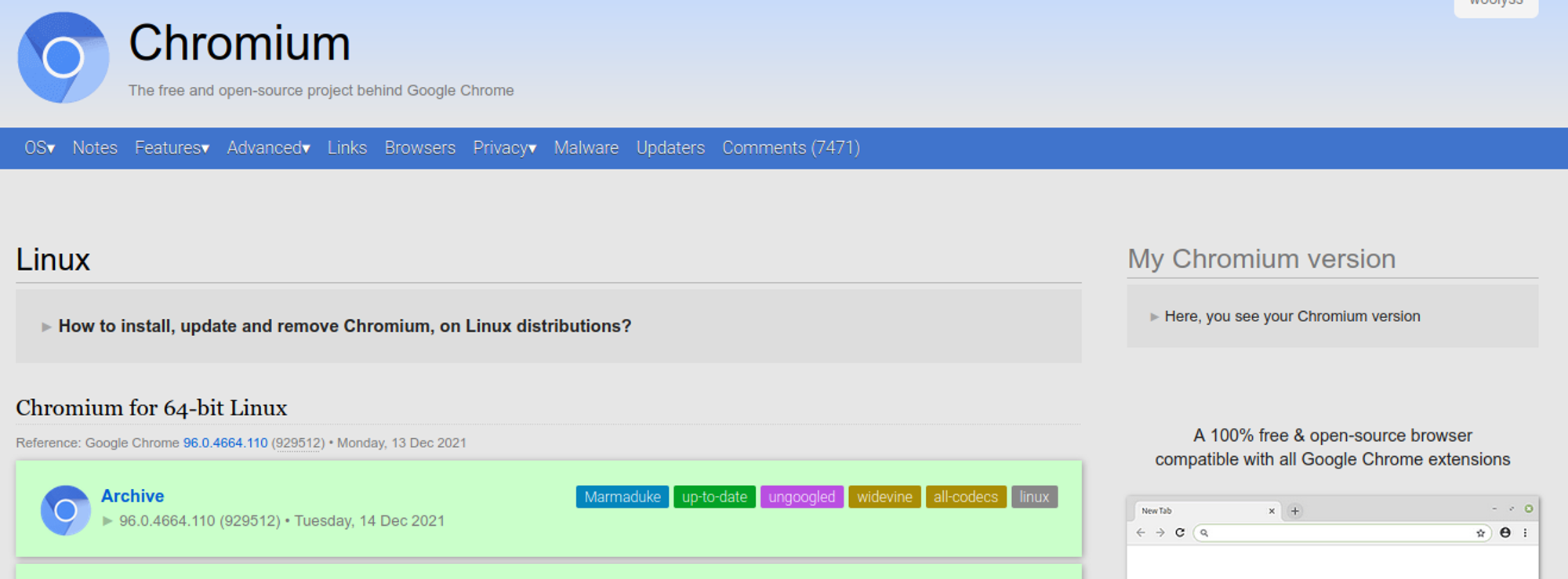
Ungoogled Chromium is a multi-platform special in Google Chrome (minus the Google integrations). As you might expect, it is geared towards Linux users but does have some Windows and Mac options if you are willing to dig.
It is entirely supported by a small team, resulting in less overall support. The complete removal of all Google services also ensures that you aren’t accidentally releasing any information you don’t want to.
Of course, you’ll want to avoid logging in at anything (like any other browser). So when it comes to offering a good privacy base, this is excellent.
Because the original creator (Eloston) is no longer contributing to this, you’ll need to browse user databases to see how to find it. This can be painful for people who aren’t tech-savvy, making it less suitable for those who struggle with this.
#11: Opera Browser
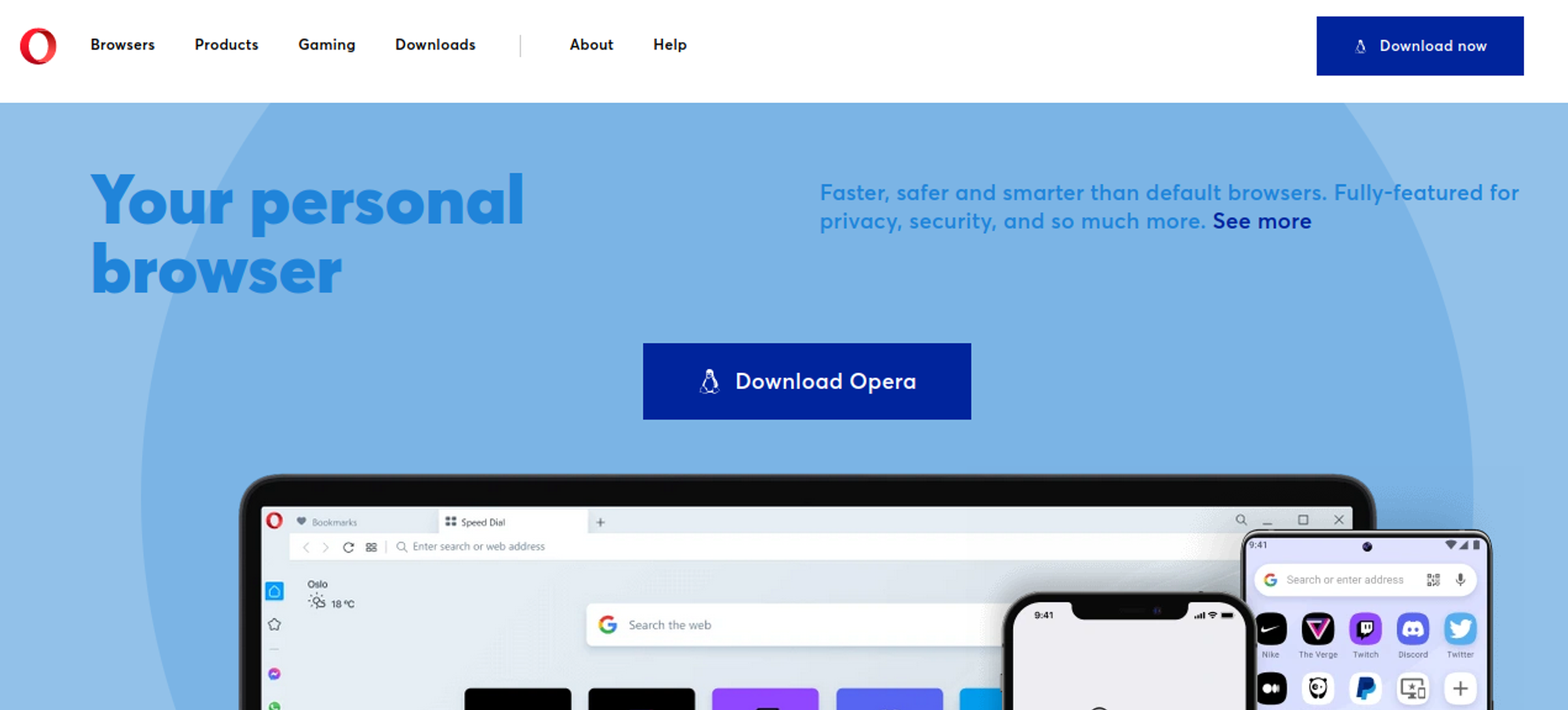
Opera is a unique middle-ground internet access tool provider. It also includes a wide variety of special features:
- Standard
- GX (for gamers)
- Browsers for mobile devices and Chromebooks.
Opera has several performance enhancements, like a lightweight browser. It also has a built-in ad blocker and a free VPN.
Opera works on all major platforms, including Windows, iOS, macOS, Android, and some Linux devices.
However, it’s at the bottom of the list mainly because the VPN tracks your connection logs. This means you can do private browsing to your ISP, but not to the government or Opera (who tracks your data).
Opera is one of the oldest web browsers, starting back in 1995. Opera also has no specific privacy commitments, but it is slightly better than the last two options we will discuss
#12: Google Chrome
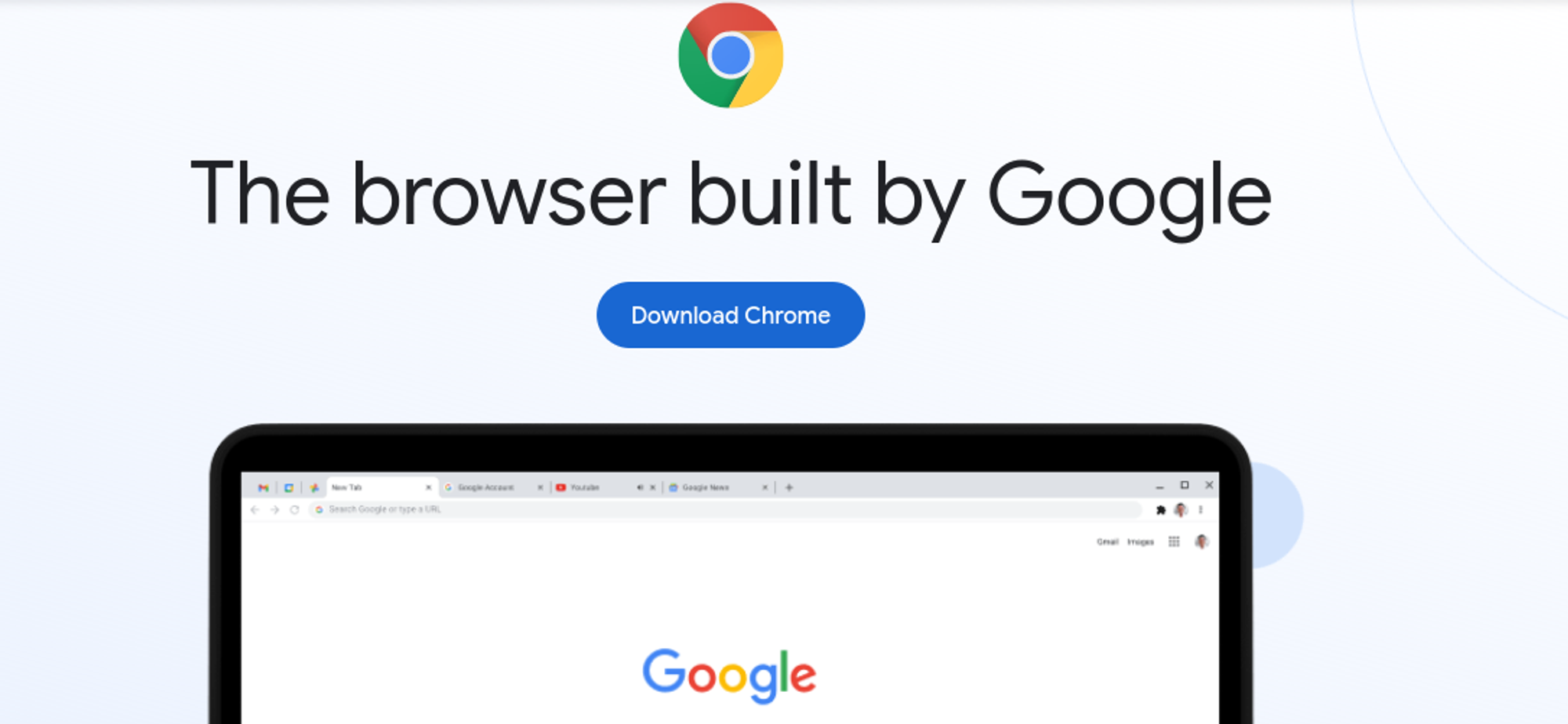
The opposite end of good privacy browsers is Google Chrome. Google Chrome is the world’s most popular web browser, offering many convenient features and great extensions.
The problem with this is that you are handing your data over to Google in exchange for this convenience. Much of this comes from the data-sync features you get from using this browser.
Google uses this data to target you with programmatic advertising. These ads target you throughout your online experience, resulting in many invasive practices.
Google Chrome also offers numerous extensions which have their privacy policies. As a result, you run the risk of your data being taken all over the place.
The good news is that you can get a few browser extensions to prevent this. These (including VPNs) will secure your data, block popups, and protect your IP address.
If you want to preserve your privacy, always use a VPN and avoid logging in using Google accounts.
#13: Microsoft Edge
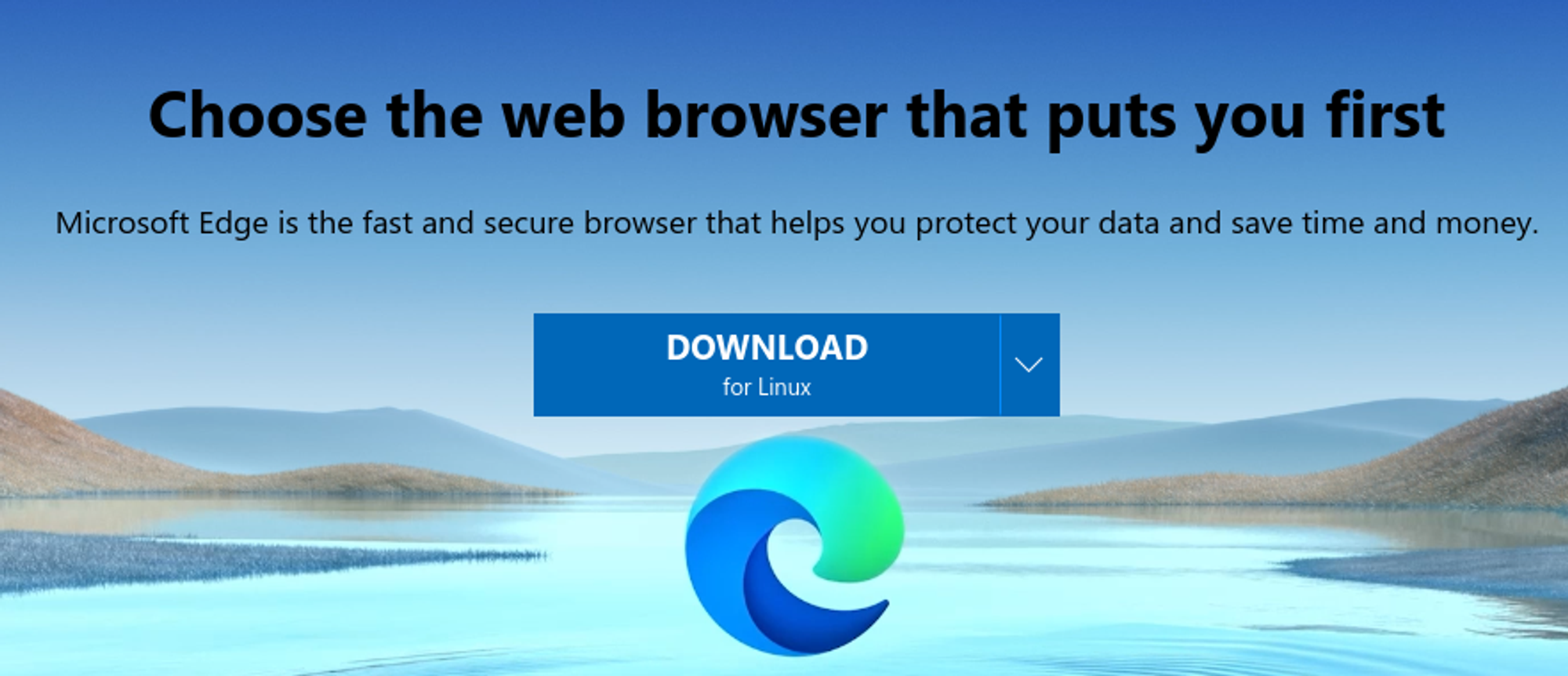
Microsoft is the second most notable technology company in the world. Its Edge Browser is its answer to the world, offering numerous performance enhancements over the previous Windows Explorer.
However, Edge is faster than Google Chrome in many cases. Still, it is not worth the massive exposure you get from using Microsoft. Microsoft isn’t as bad as Google, but Bing is concerned with search engines.
The browser comes with a moderate security rating (no different from Opera or Chrome), enabling tracking cookies to be left behind on your computer. While you can get add-ons similar to Chome, the selection is weaker.
The Bing search engine also encourages you to sacrifice your data for points. These points are turned in in exchange for entries in various giveaways. If you don’t care about your data at all, Microsoft has you covered.
Despite both Chrome and Edge being solid at blocking malicious websites, there is no attempt to prioritize your security.
Tips For Finding A Good Privacy Browser
Got another browser that is not on this list? Here are some things to look out for to ensure you get a good one:
- Privacy Policy – A company’s privacy policy should indicate what they track. If there is no clear indication, they likely sell your user data.
- Company Reputation – Look up the browser and see if they were caught in any significant data leaks.
- Tor Support – Tor support is an excellent option for any browser. If not, your alternative is to get a good VPN.
- No Big Companies (usually)– Larger companies typically sell user data in droves to earn their money.
- Selective With Extensions – Some browser extensions are not secure, so be sure to pick a picky browser about who goes on their platform.
- Automatic Deletion – A good browser automatically deletes browsing history and tracking cookies.
Conclusion – How To Ensure Your Browser Data is Secure
A good browser is a start when it comes to securing your internet. However, none of this helps if you do not secure other elements of an online connection.
To ensure your browsing data (and other data types are secure), download The Fast VPN, so you are safe across all platforms. A comprehensive focus on mobile and browser protection is required to ensure nobody steals your data.
Related posts
• Best Browser for Privacy in 2022
• How to Clear Cookies on Chrome, Firefox, Opera, and Other Browsers
• How To Use a VPN (Regardless of Your Platform)
• What does an incognito mode do?
• How To Disable A VPN On Any Device? Seven Ways to Turn-Off Your VPN
• تمديد VPN Chrome
• All you Need to Know About Tor Browser | Best Guide 2022
• Does Green Padlock mean You are Safe?
• Is Your VPN Leaking?
• What is My IP? The Basics of IP Addresses and Your Privacy
When it comes to device safety and protecting personal data, a VPN is an excellent tool. VPNs are excellent tools for hiding your physical location. But how do you hide your real location with a VPN?
Most VPNs give you a list of locations under the dashboard section of their software. Ideally, you should be able to see a list of sites so you can pick where you hide.
Our Fast VPN software enables you to hide your data quickly. Below, we will go through the steps you need to take to protect yourself.
How To Change Your Actual Location With a VPN
When hiding internet communication using a VPN (Virtual Private Network), your area is one basis automatically hidden. Our software at Fast VPN will enable you to mask your data and internet traffic.
This masking prevents would-be hackers from determining identifiable information, like where you live. To do so, you can follow these steps:
- Download the application from your location (At the time of writing these, our app works on Android, iOS, and macOS)
- Click on the connection button of your application.
- Choose from the available list of locations (seen below)
- Wait for the connection to complete
- Check the accuracy of your area through the dashboard (see below)
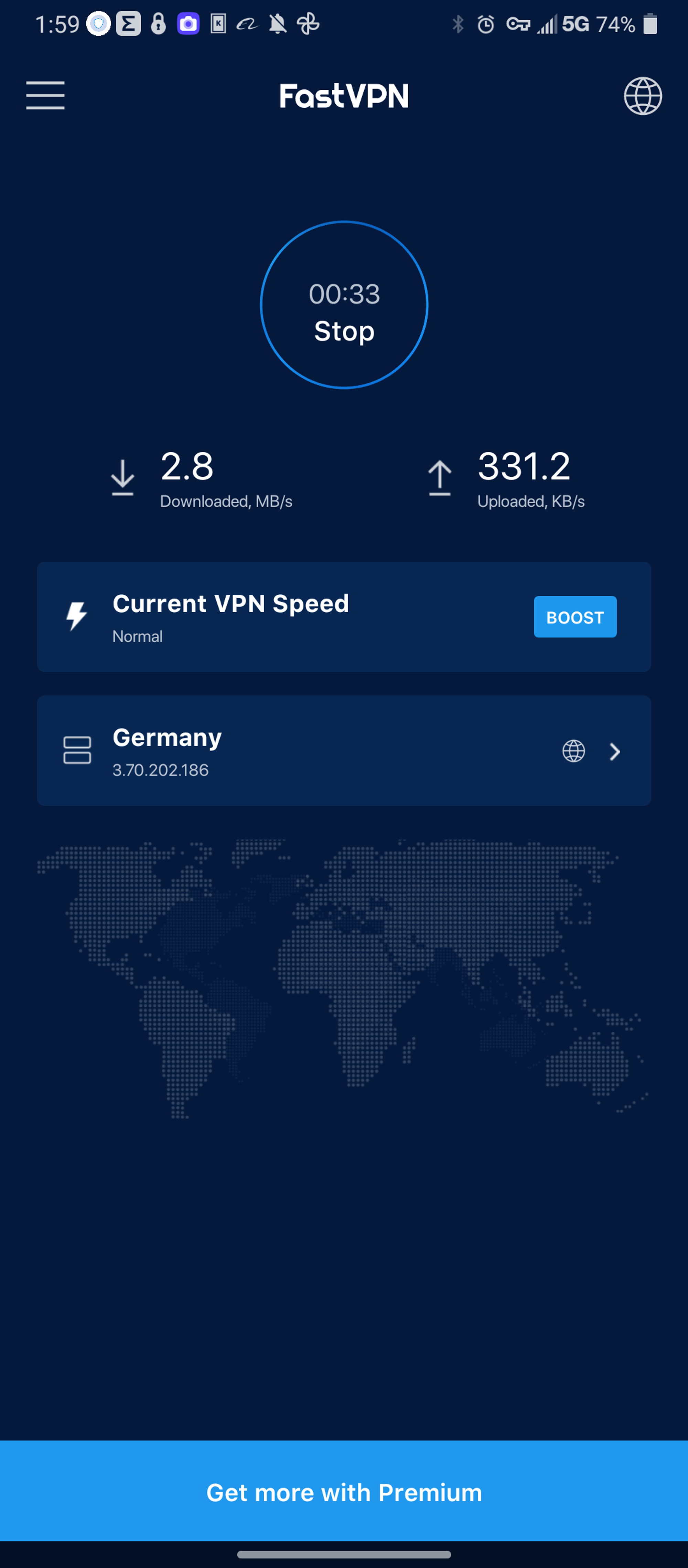
The simplicity of selecting a location using this VPN app is straightforward. Feel free to reach out to our customer service team for further assistance.
This tool is a clear answer on how to hide your location with a VPN. Most of this location hiding effort comes from hiding your IP address.
Why Hide Your IP Address?
There are numerous security benefits to hiding your IP address. One of the most important examples is hiding your IP address location, preventing people from accessing aspects of your data.
Your server location reveals a lot about you. Combining this with some simple information people can access publically, they can get a picture of who you are.
Social manipulators and fraudsters can use this information to steal your identity. So maintaining your digital privacy is essential when protecting yourself.
Why is My VPN Not Hiding My True Location?
If you want to access region-locked content (i.e., Netflix shows you usually cannot access) and still find yourself seeing the same-old shows, your VPN is not hiding you securely. The reasons why this happens come from these situations:
Websites use Tracking Cookies
Pre-existing tracking cookies not removed before you access content store old location data. When your cookies rely on old data, it might be assuming you are still at the old location.
If you switch servers or access a website without your VPN, this can happen. This situation also applies if you have a VPN at another location. Regardless, you should consider downloading a private browser or clearing your cookies regularly.
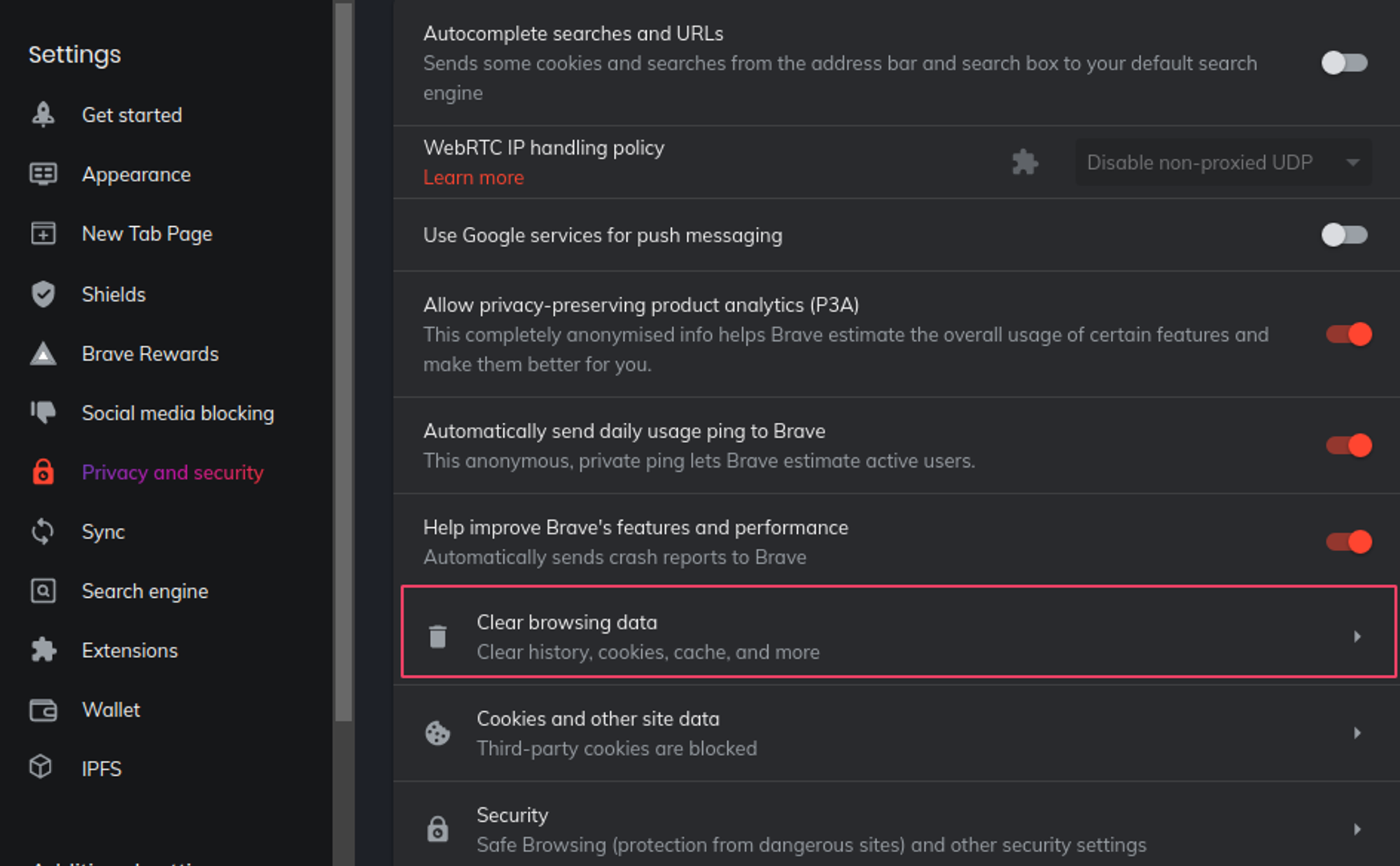
Your Browser Geolocation is Exposed
Whenever you access certain websites, you have the option to share your information. For example, you will see this when trying to get map directions on Google:
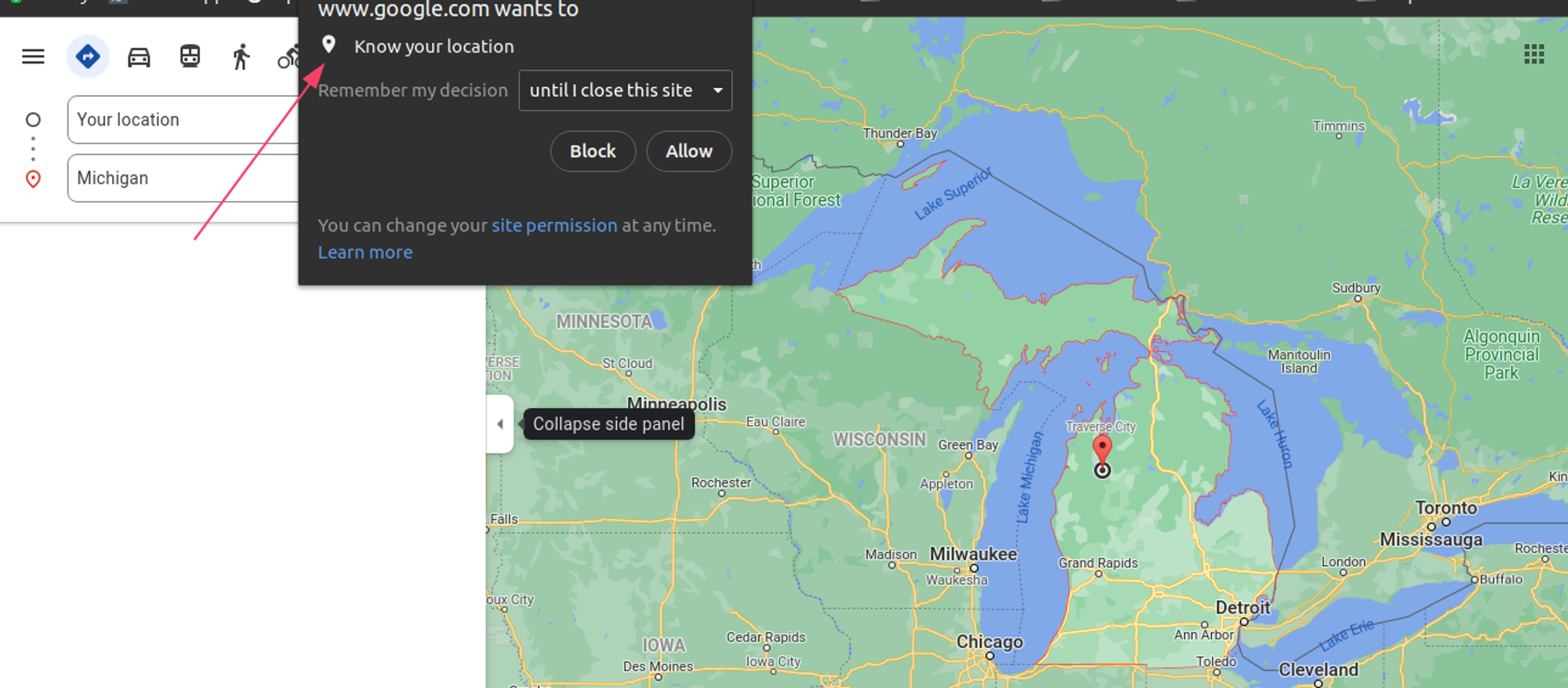
When clicking the “allow” button, you give the site permission to access your geolocation. By clicking the “block” button, you deny access to data on where you live or where you are going.
When you select “allow,” sites will remember this permission, which is why you should consider limiting this memory. For example, choosing “until I close this site” will determine how long they have access.
Do not rely on area-based services continuously, as that is a breach of privacy.
Your VPN Leaks IP Addresses
Location leaks occur when your VPN has a security issue. These leaks are signs of a low-quality VPN, exposing your real IP address and area as a result.
You can test the potential of leaks through sites like WhatIsMyIPAddress.com. Here’s a screenshot of the hidden results below:
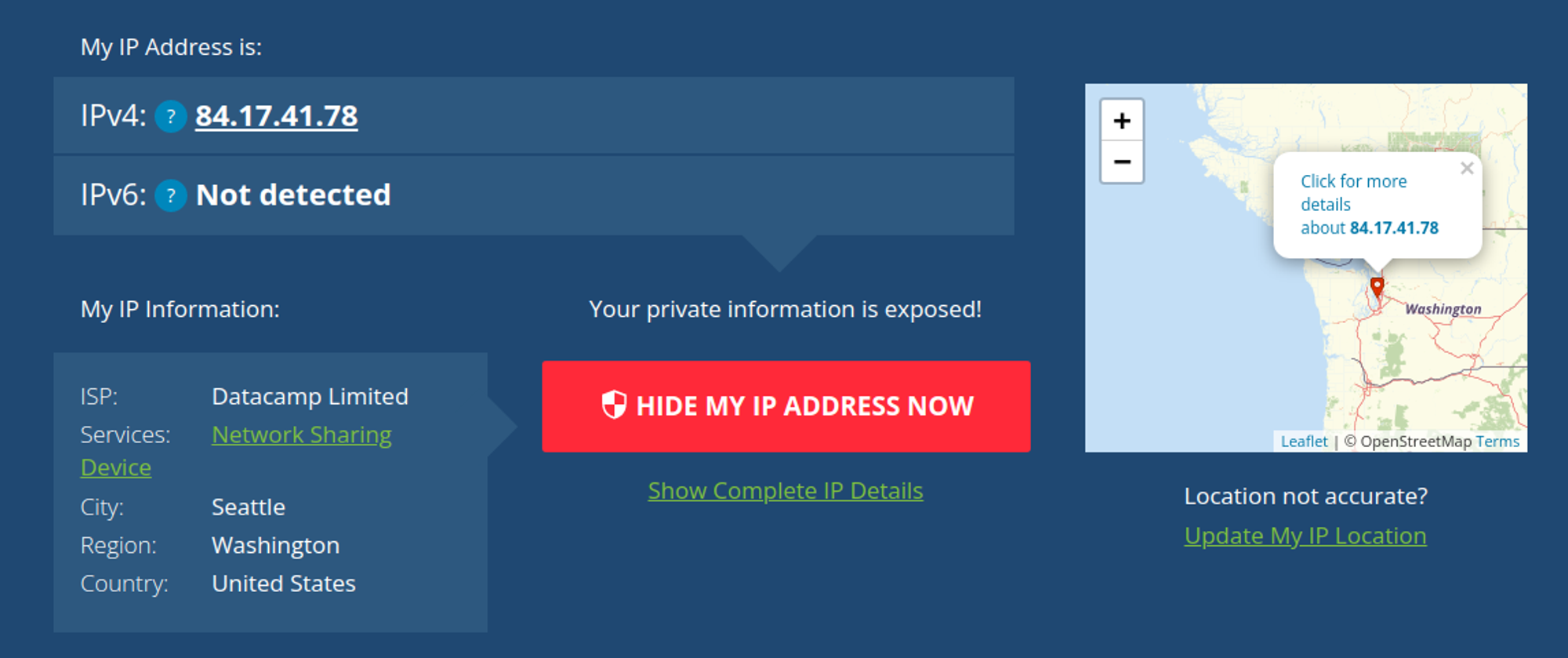
The “your private information is exposed” message is an ad. Regardless, these tools are excellent at finding IP leaks.
Anonymous Proxy vs. VPN
An alternative option to VPNs is an anonymous proxy service. However, there are numerous downsides to proxies that make VPNs preferable.
First, VPNs offer the complete encryption of all of your internet traffic. This encryption applies to gaming traffic and application-based traffic as well.
A proxy is usually better for businesses or home networks seeking a secure gateway. However, VPNs are much more adept, given that they provide an encrypted tunnel between server and client (you and your destination).
Conclusion
When it comes to protecting your online location, it is essential to remain secure. When using services that identify your area, be sure to use them sparingly. Criminals use this data to hijack your personal information.
The best way to ensure your IP location is completely secure is through a VPN. This establishes a virtual place, identifying you as a resident of an alternate area. It is the ultimate answer on how to hide your location using a VPN.
You can supplement this using a Proxy, but VPNs are more secure across the board. Download The Fast VPN today to see how our tools can help secure you.